
4 Oct, 2023
The two Indian travel veterans who shook up PATA
As the Pacific Asia Travel Association (PATA) meets this week for the Travel Mart in New Delhi, it may be timely to recognise two late Indian veterans who defied the odds to bring about changes which had far-reaching impact on PATA and the Asia-Pacific travel industry.
Mr Inder Sharma (PATA President, 1992-93) spearheaded the membership of China in PATA and Mr Ram Kohli (PATA Chairman, 2004-05) overhauled what he called the “culture of corruption” which he alleged prevailed in the association at the time.
Both events are critical chapters in the history of PATA, and offer lessons in leadership which are very relevant in this day and age. This edition of Travel Impact Newswire will recap what they did.

Inder Sharma
Mr Sharma, founder and chairman of SITA World Travel, India assumed what was then termed the PATA presidency at the PATA Board meeting during the annual conference in April 1992 in Hong Kong for a one-year term.
At that time, PATA had approved a plan called “Direction 2000” designed to prepare the association for the 21st century.
China was also rising on the world stage. Its inbound/outbound tourism was set for takeoff. Mr Sharma knew that bringing China in as a PATA member was crucial to the future of both PATA and the region.
But there were obstacles…
Taiwan was a long-standing PATA member. Many of its senior industry executives were amongst the founding members.
On the PATA membership roster, Taiwan was listed as “Republic of China.”
China did not accept that. In line with its official One-China policy, the Chinese government insisted it will not sit at the table with any other entity claiming to be a representative of “China”.
The condition set off a firestorm amongst the PATA board members, with many of the veterans rejecting it as unacceptable. They said PATA membership could not be pegged to any conditionalities, and that it would set a bad precedent. They also noted that the Taiwanese travel industry was a long-standing supporter of PATA and deserved to be treated with respect.
The task of negotiating a path through these landmines fell on Mr Sharma’s shoulders.
Mr Sharma had begun working on it even in his capacity as President-elect in 1991, but with the full support of PATA’s then President Mr Neil Plimmer of New Zealand.
In 1991 and 1992, Mr Sharma made a number of unannounced trips to Beijing for talks with officials of the China National Tourism Administration.
The compromise he managed to achieve was that the Chinese would withdraw their demand if the name “Taiwan, ROC” would be changed to “Chinese Taipei.”
When Mr Sharma unofficially pitched this to the PATA board members, the hard-core supporters of Taiwan rejected it outright. Others were more amenable. They said it was only a name-change. Taiwan could still remain a member, host PATA events and retain full rights.
Mr Sharma used all his astute diplomatic skills to persuade the board members to look at the big picture, the wider good, the long-term benefits for all. When most of the PATA board came on board, Mr Sharma sent the green light to the Chinese authorities.
CNTA sent a letter of intent for membership to PATA in 1992. The board approved it in 1993, along with the Taiwan name-change.
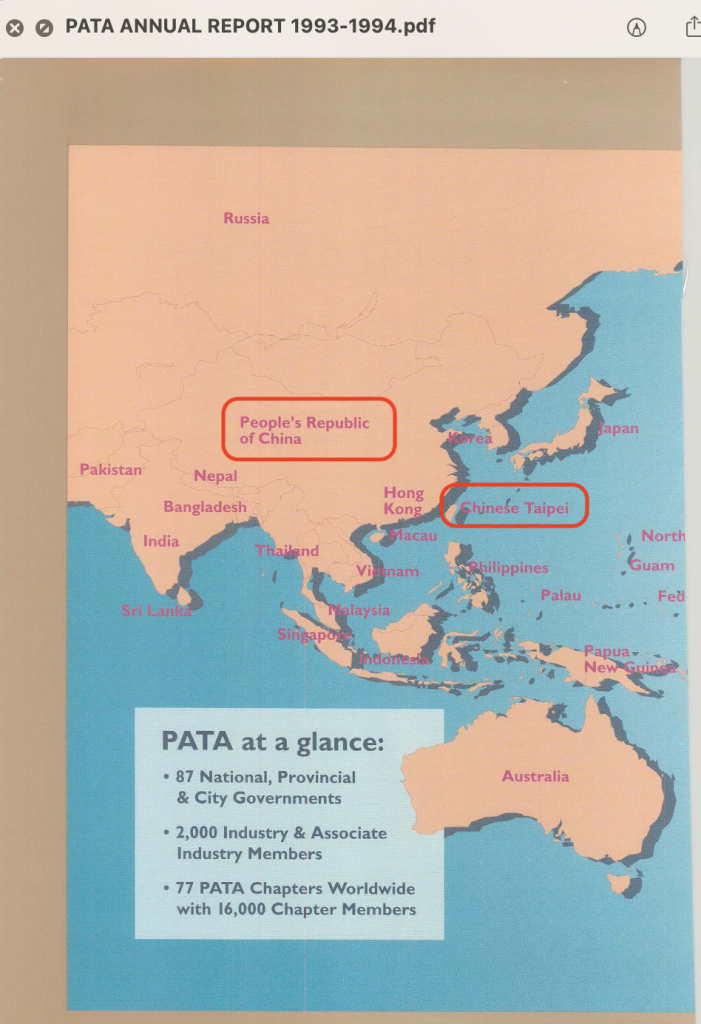
The Taiwanese accepted the decision but made their displeasure clear.
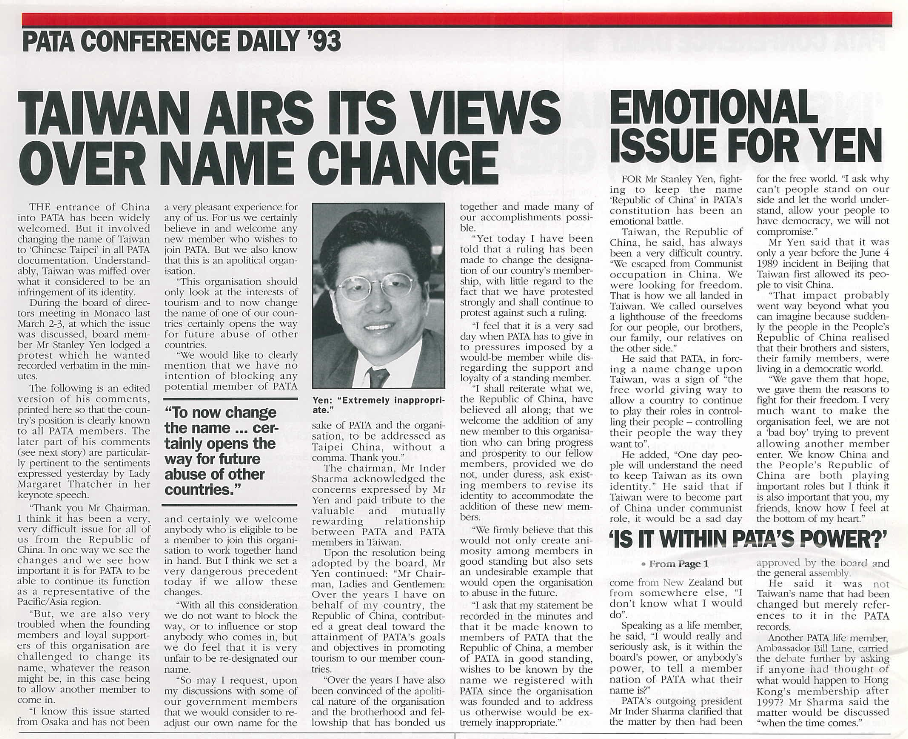
China followed it up with a bid to host the annual conference and travel mart in Beijing in 1997, the same year as the Hong Kong handover.
The conference was a grand success and catapulted China on the Asia-Pacific tourism map. These headline speak for themselves. The rest, as they say, is history.
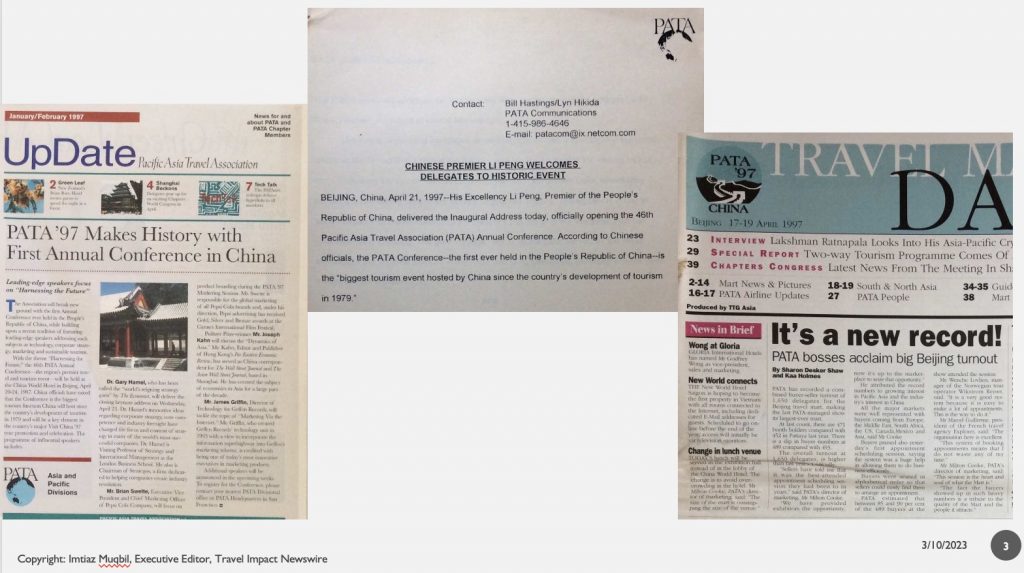
Mr Sharma never publicly claimed any credit for his achievement. In fact, he always humbly deferred to the support and encouragement of his board members.
Here are written responses he sent me in April 1993 after his one-year term ended.
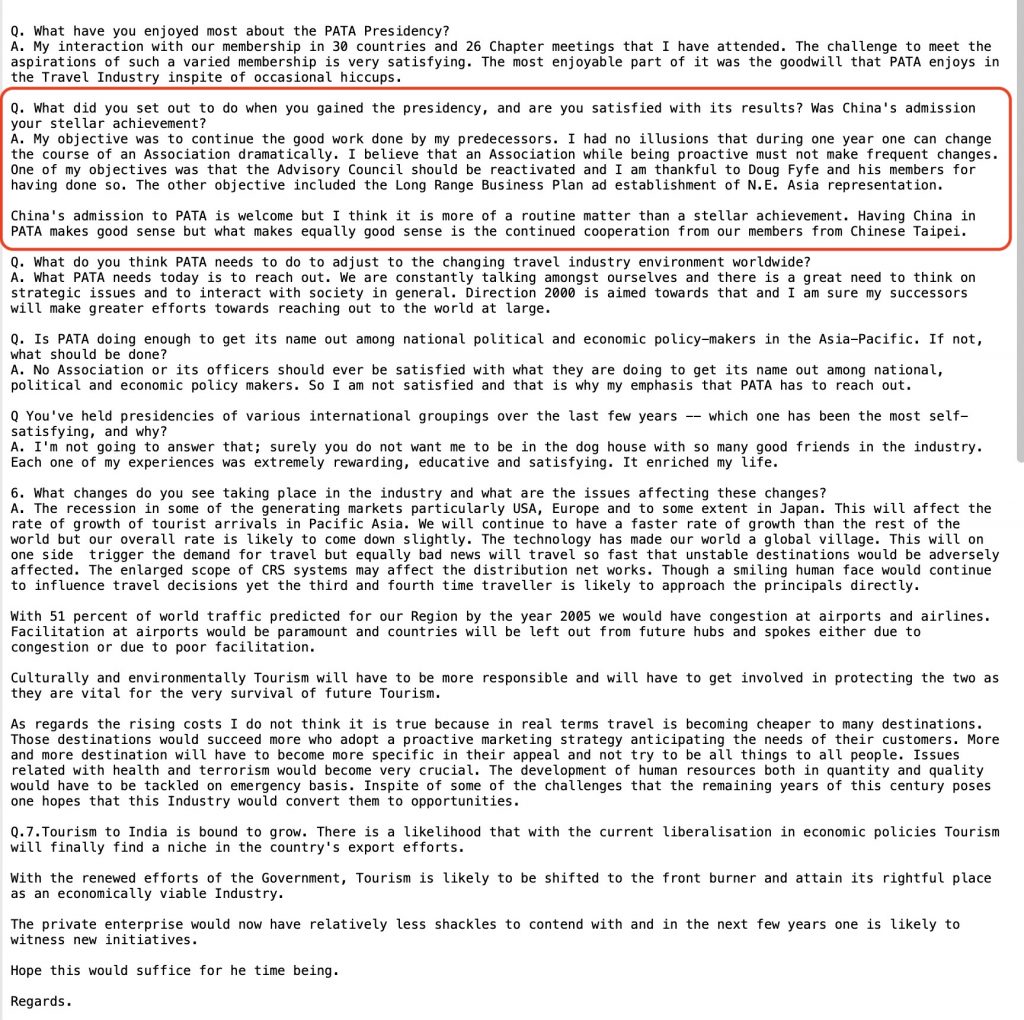
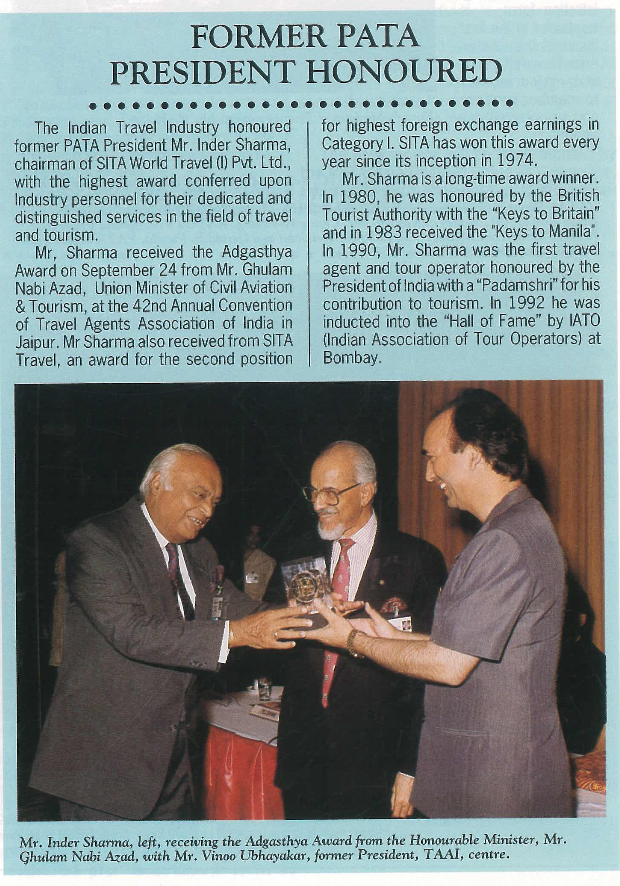
Mr Sharma also shared another emotional attachment about which not much is known.
His family originated from what is now the Pakistan side of the border. He understood well the personal trauma of the partition, but as a businessman he also knew the potential of Pakistan and India forging tourism bonds.
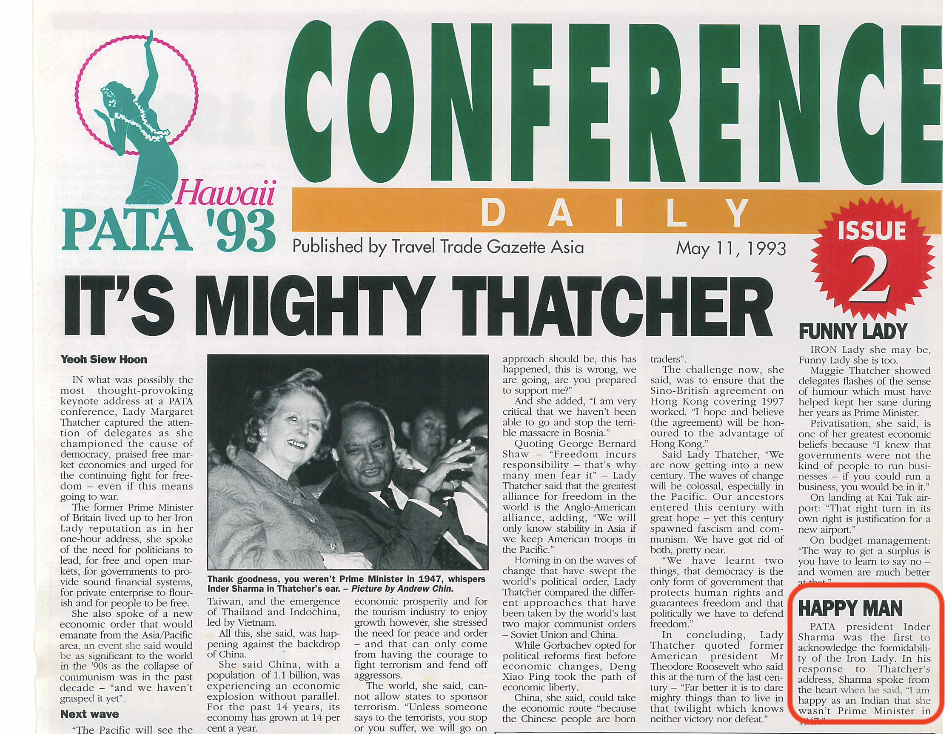
In 1992, New Delhi and other Indian cities had been hit by communal riots.
But in July 1992, PATA held its first Asia Division meeting in Karachi, with Mr Sharma attending in his capacity as PATA President.
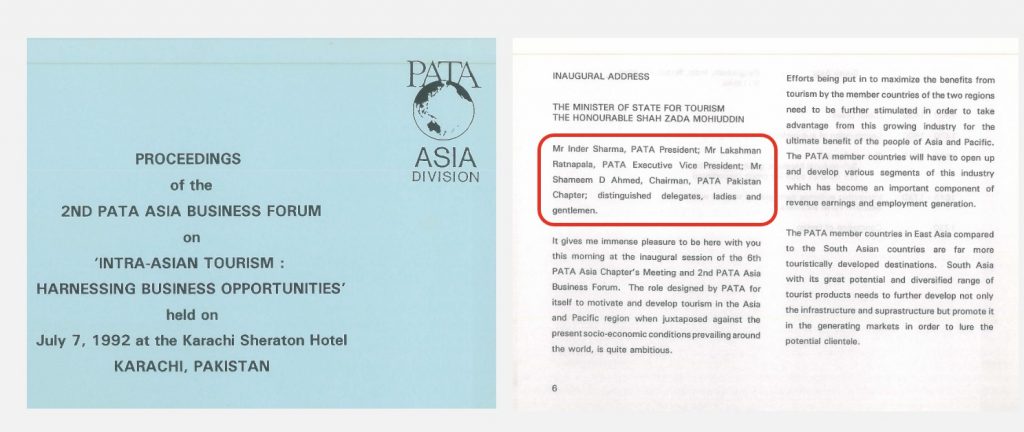
He passed away in Sept 2017. I am honoured to have known him, and learnt a lot from his wisdom and statesmanship.
Ram Kohli
Ram Kohli, Chairman of Creative Travel, India, was chairman of PATA between 2004-05.
By 2004, PATA had moved its headquarters from San Francisco to Bangkok. But it was feeling the pinch of multiple external shocks such as the 9/11 attacks, the Bali bombings in 2002, the Iraq war and a general economic slowdown. Technology was making itself felt. Economic shocks were hurting, and the Travel Mart was being hit by increasing competition from smaller but more cost-effective events.
Membership was dwindling.
The titles had also changed. The former title of “President” had been renamed “Chairman”. The chief operating officer, formerly known as Executive Vice President, had become the President.
Mr Joe McInerney, the PATA President at the time of the HQ move, had returned to the US, to be replaced by Mr Peter de Jong.
Various attempts were being made to restructure and revive PATA, including internal reshuffles, new events, improved research and intelligence services, etc.
But Mr Kohli was upset by another erstwhile untouchable. He felt Mr de Jong, his PA and several senior staff members were being overpaid. At a time when both PATA and its members were hurting financially, he felt the salary structure and various other aspects of the PATA finances needed to be looked into.
He started probing deeper… and he didn’t like what he saw.
The result was a year-long confrontation, which often turned ugly and bitterly personal.
Mr Kohli’s term ended in 2005, but his legacy lived on, especially as both PATA’s finances and membership continued to slide, culminating in the disastrous CEO Challenge event in 2008.
The blame game continued. Mr de Jong resigned in Sept 2008, before his term expired.
As for Mr Kohli, for his sins, including the monstrous one of demanding more transparency and accountability from the PATA inner-circle, he was never conferred a Life Membership. It was not until 2012 that the then chairman Mr Hiran Cooray, now Chairman of Jetwing Travels, Sri Lanka, conferred him the PATA Chairman’s award, to make up for that show of disrespect.
Click on the image below to read what Mr Cooray had to say about that.
Mr Kohli never wavered. He continued his campaign with these comments in 2008. (Click on the image to read the full report).
Many of his recommendations were implemented by the CEOs who succeeded Mr de Jong. Several others were ignored.
Mr Kohli passed away in March 2014. I am honoured to have known him, and learnt a lot from his single-minded determination to fight the odds.
Click on the image below to read more about Mr Kohli and the company he founded, Creative Travel India.
Like Mr Sharma, Mr Kohli, too, had a broader purpose in life. His family also traced its roots back to the Pakistan side of the border.
He, too, knew that India and Pakistan were in fact their best cross-border sources of visitor arrivals. They also offered unbeatable cultural and heritage tours that would appeal to millions worldwide, especially members of the diasporas.
But that depended on the two countries making political peace, relaxing visa curbs and improving transport linkages.
In 1988, he organised the first and only Lahore Summit, a visionary bilateral caucus to forge closer travel, tourism and transport contacts. I was unable to cover it, but details were published by the Indian travel magazine Wonderlust, which I retained for their historical value.
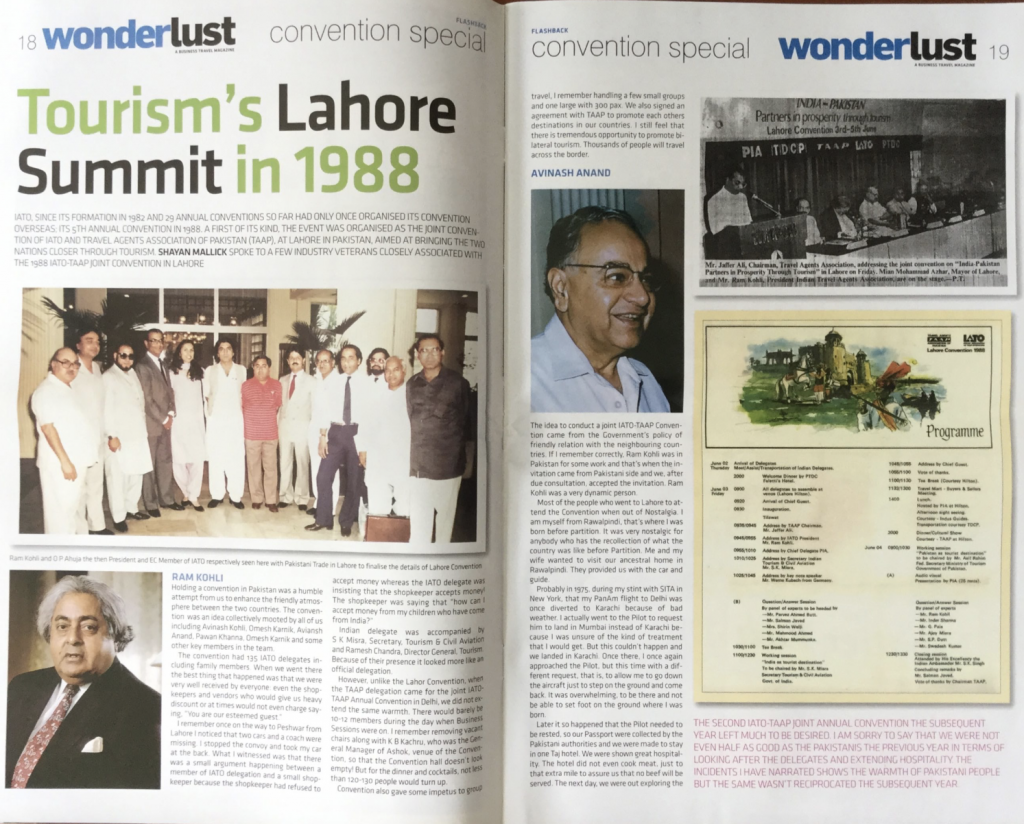
Conclusions and Key Takeaways
Both Mr Sharma and Mr Kohli were hard-nosed businessmen with a strong sense of purpose, leadership and family values. Although poles apart in terms of personality and demeanour, they knew how to get their way and deal with criticism. They left an indelible mark on travel & tourism in India and across the Asia-Pacific region. Schools of business studies and management will find them excellent case-studies in leadership skills.
In today’s bitterly polarised and antagonistic geopolitical atmosphere in India, their outreach to both China and Pakistan both would never have been possible. Like true industry bridge-builders, they sought on both fronts to overcome parochial ethno-cultural differences in pursuit of a wider good.
Those attending the PATA Travel Mart in New Delhi this week can learn a lot from their dogged determination to do what is right — and stay the course, come what may.

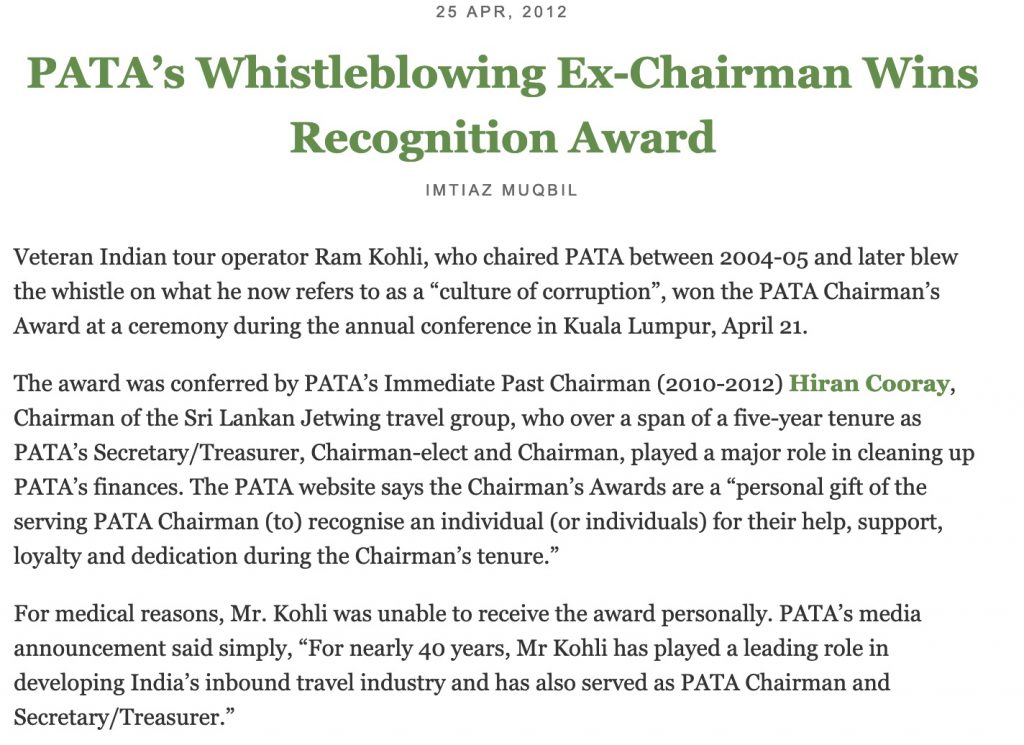
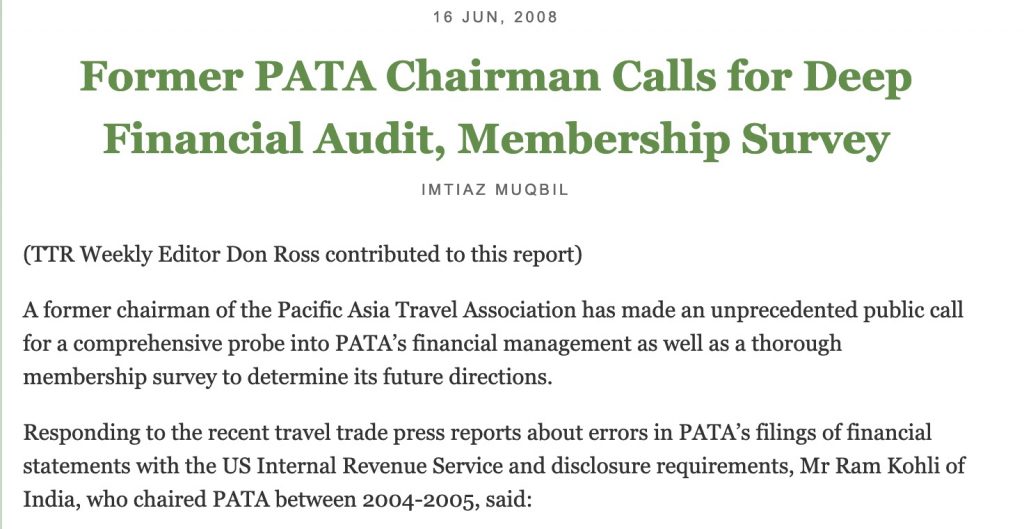
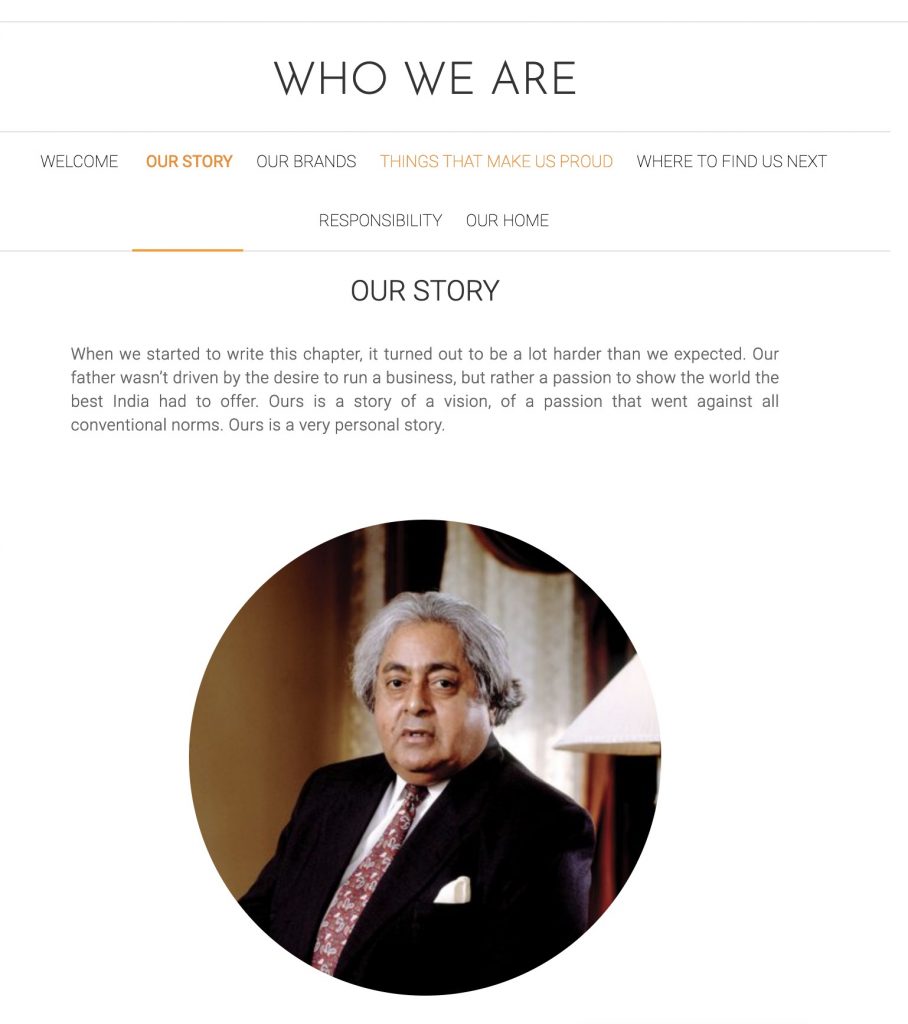


Liked this article? Share it!